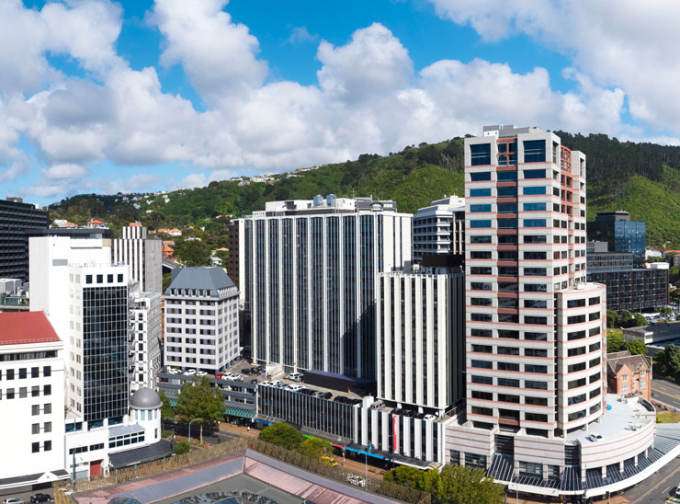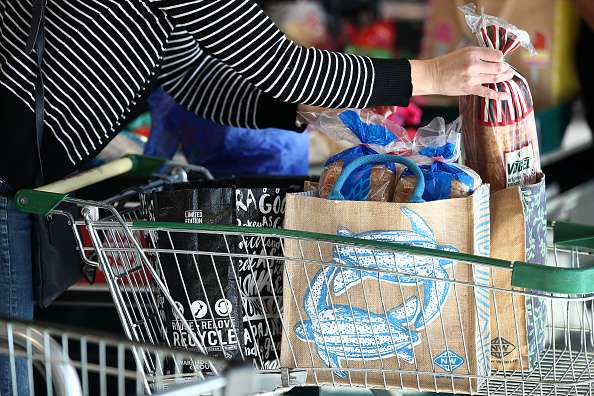As the global share market reels in the wake of coronavirus, cashed-up Kiwis will be increasingly looking for a safe place to park their money and grow their savings.
Commercial property may be that place.
Ryan Johnson, Bayleys national director for commercial and industrial property, says the commercial property sector offers plenty of opportunities for investment.
As warnings come that older people can no longer rely on living off interest from savings, Johnson points out there has been an “extraordinary outflow” of money - in the billions of dollars - from maturing low yield term deposits with people now looking for somewhere to put their money.
Start your property search
Commercial real estate can offer yields of between 5.75 to 6.75 in real, inflation-adjusted terms, compared to 1.5 per cent from term deposits - which Johnson says in real terms is negative.
“To a degree, particularly for retirees, they’re looking for that income element, so for the right commercial building with the right tenants it’s very attractive,” he says.
He recommends people wanting to invest for good returns talk to a broker. “There’s the ability to club investors together on a purchase.”
Syndications and supermarkets
There are also good syndications (where a property is bought by a property fund manager and on-sold but managed) to be had, he says. “There’s a number there from Augusta to Oyster to Silverfin to PMG so I think there are certainly a number of offers out there.”
A property with a good lease covenant and the right tenant means security of income over time, Johnson says. “For example, we’re marketing some Woolworth supermarkets with 10 year leases and, you know, with the way in which the world exists today supermarkets aren’t going to be shy of revenue, right, and they’re a 10 year term.”
A number of leases have three per cent annual fixed increases as well so with the right lease covenant the investor gets capital preservation from a good company with a strong balance sheet.

Syndications are becoming increasingly popular with investors. Pastoral House, an 18-level commercial building in Wellington which is being offered to investors by Oyster is one such recent example. Photo / Supplied
Some companies are a better bet than others currently - but even Air New Zealand is 51 per cent-owned by the Government, and with airlines struggling badly the company could end up 100 per cent Government-owned by the next quarter, which means a Government guarantee, says Johnson.
“From a tenants’ perspective you’ve got effectively Government tenants with Government guarantees, you’ve got triple A-rated corporates with very strong balance sheets and you’ve got industries that are still very strong.”
Less volatility
People may need to be mindful of what sort of building they are buying into, but overall commercial property gives less volatility than the sharemarket. “You get a tenant with a six- or a nine-year lease and to a large degree the tenant is locked in for six to nine years and that will ride you through the current volatility the market’s going to see over the next 18 months,” he says
Todd Lauchlan, JLL’s managing director for New Zealand, says there is safety in getting into a building which has a Government tenant. Supermarkets are also a low risk option.
“You’re absolutely guaranteed the rent will be paid and you know the syndicater has probably got a much cheaper debt than they previously had so their returns are obviously pretty strong and protected.”
Most commercial property owners have plenty of equity in their properties and a good mix of tenants so even if a few had solvency issues the rent still gets paid and the value is more stable over a long period of time.

Supermarkets are seen as low-risk investment options. Photo / Getty Images
Lauchlan doesn’t think there is any panic in the market and says the current situation is not the same as the Global Financial Crisis where banks and finance companies wanted their money back because there was a bank solvency issue and there were high interest rates.
Instead, there are falling interest rates, an economy trading normally in most senses and a Government stimulus package, plus people have built up their equity bases and balance sheets in the past 10 years so there’s no stress or strain out there, he says.
“It’s just probably people being realistic and saying ‘we’ll just trade through this or just wait and see a little bit while things settle down’ because it’s such a fast-moving beast.”
Opportunities ahead
Chris Dibble, head of research for Colliers, says there are opportunities ahead. While a lot has changed, and it’s reasonable to expect more change, one thing is apparent: “There will be investment opportunities in the property sector ahead," he says.
“Commercial office and industrial property will continue to be highly attractive to a wide range of prospective purchasers.
“Low interest rates and competition from limited stock to buy will see prices rise and yields firm further.
“However, greater focus on tenant covenant will be a key feature of the market with investors looking at tenant resilience through strong cash flow, manageable debt and a reliable revenue outlook.”
And Gareth Fraser, Colliers investment sales director for Auckland, says there is no investor panic so far.
“There are some corporate and institutional parties who may pause to understand the potential impacts of Covid-19 but private investors, the predominant buyer pool for commercial, are not panicking.
“These buyers see any temporary pause as a good opportunity to acquire stock in a market that has been very strong and therefore difficult to buy due to the high level of competition.”
He also expects investors to place more emphasis on the strength of tenants for the next few months.
Long-term view
There is a good amount of stock on the market with volumes unchanged, ranging from commercial office syndication opportunities in Hamilton, with a minimum investment of $50,000, to mid-sized industrial investments in Mt Wellington and larger passive investments in West Auckland, and at the top end there’s a huge land holding in prime Remuera, Fraser says.
People considering investing in property should take a long-term view, he says.
“We are likely to be in a low interest rate environment for a sustained period now which is a big positive.
“The key fundamentals when investing in commercial property remain unchanged - location (mitigates risk), tenure (freehold is preferred), tenant covenant and ability to re-lease, accessing current and market rentals, seismic rating, building construction, zoning, potential capital expenditure and any future upside (development potential etc).
“It is more complex than residential investment and you should surround yourself with experts in these fundamentals,” Fraser says.
Barfoot and Thompson commercial manager John Ulrich says uncertainty has halted a number of property-related decisions but as the picture becomes clearer the market will act, "and act very quickly". "With the property there are always opportunities to negate timing effects. The 'focused and bold' are looking for quality property that will suit quality tenants. More of these types of opportunities will present themselves. Being there to act will pay dividends for buyers. The fact remains the asset class is a long-term play and serious investors must eventually look beyond Covid-19."
"Right now buyers should be looking at distressed assets, partly tenanted or poorly tenanted property. Properties of extraordinary strong tenant covenants are obviously good, but more importantly, they must be residing in buildings that represent good factors of production. Fortunes are made in crises like these and it is always the long sighted that stand to gain."
Zoltan Moricz, CBRE’s senior director of research, says up to the crisis the environment has been healthy with a lot of liquidity and buyer interest out there. “So we’re starting from a pretty healthy position and fundamentally a lot of that liquidity hasn’t disappeared.”
Moricz says Colliers latest New Zealand Investment MarketView research report showed the industry was in good shape.
It revealed syndicates and institutions were propelling the commercial property market upward with the second half of last year recording the fourth highest transaction volume in the market’s history of $2.8b.





































































